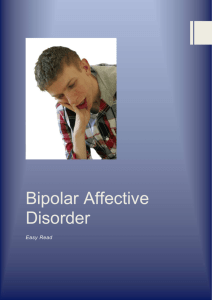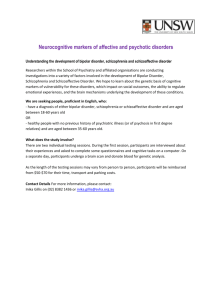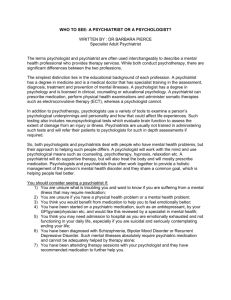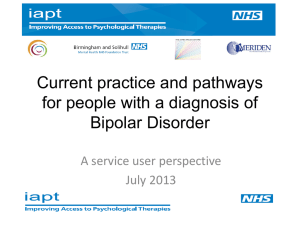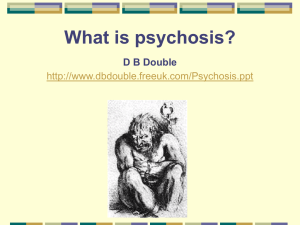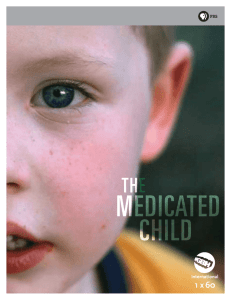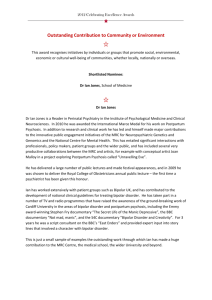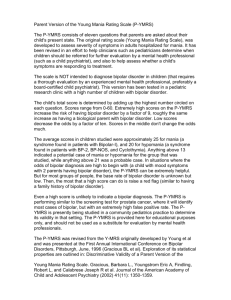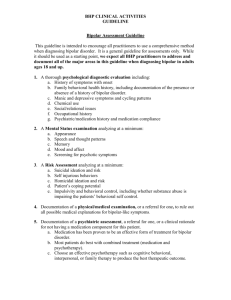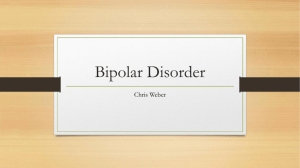in this word document.
advertisement
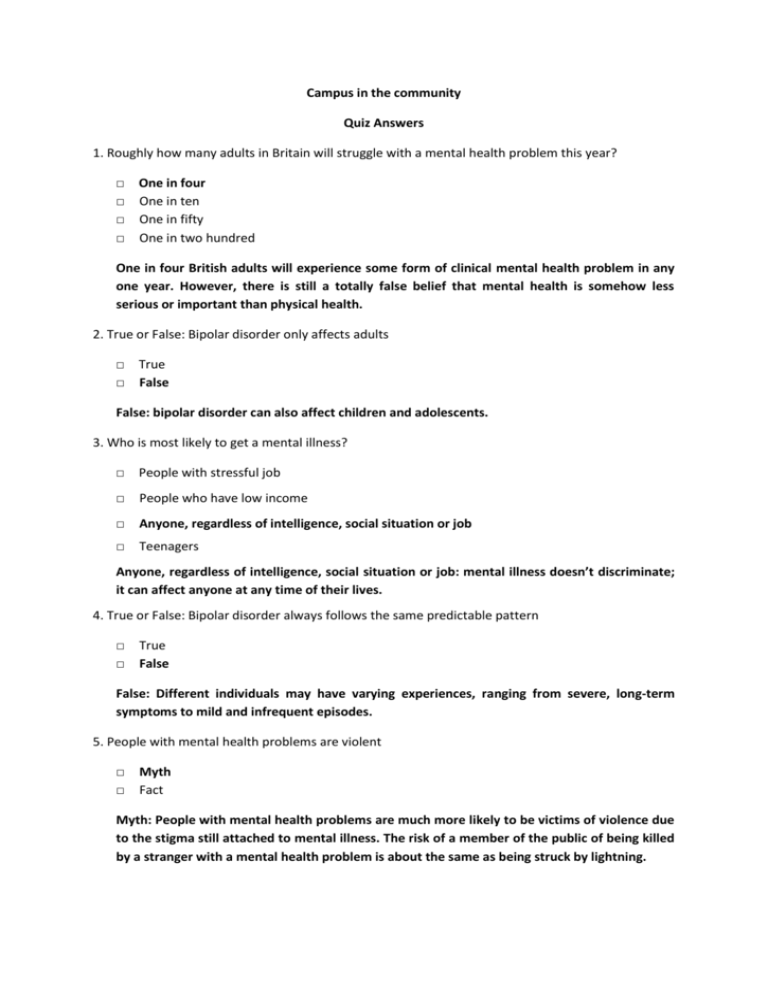
Campus in the community Quiz Answers 1. Roughly how many adults in Britain will struggle with a mental health problem this year? □ One in four □ One in ten □ One in fifty □ One in two hundred One in four British adults will experience some form of clinical mental health problem in any one year. However, there is still a totally false belief that mental health is somehow less serious or important than physical health. 2. True or False: Bipolar disorder only affects adults □ True □ False False: bipolar disorder can also affect children and adolescents. 3. Who is most likely to get a mental illness? □ People with stressful job □ People who have low income □ Anyone, regardless of intelligence, social situation or job □ Teenagers Anyone, regardless of intelligence, social situation or job: mental illness doesn’t discriminate; it can affect anyone at any time of their lives. 4. True or False: Bipolar disorder always follows the same predictable pattern □ □ True False False: Different individuals may have varying experiences, ranging from severe, long-term symptoms to mild and infrequent episodes. 5. People with mental health problems are violent □ □ Myth Fact Myth: People with mental health problems are much more likely to be victims of violence due to the stigma still attached to mental illness. The risk of a member of the public of being killed by a stranger with a mental health problem is about the same as being struck by lightning. 6. Which of the following are among the 12 steps to Positive Mental Health? (Please tick the correct statements) □ □ □ □ □ □ □ □ Be active Spend time alone Eat chocolate Care for others Keep in touch with friends and others Talk about your feelings Watch lots of TV Go shopping Be active, care for others, keep in touch with friends and others and talk about your feelings are four from the 12 positive steps. The others are as follows: eat well, drink sensibly, ask for help, do something you are good at, relax, accept who you are, learn new skills and getting involved. 7. There is not much you can do to help someone you know who has a mental health problem □ □ Fact Myth Myth: There is a great deal you can do to help, even just staying in touch can help. For many people it is the small things that friends, family and colleagues do that can make a big difference. 8. Which of the following mental health disorders can be treated with medication and therapy? □ □ □ □ Schizophrenia Bipolar disorder Panic disorder All of the above Most mental health disorders can be treated with a combination of medication and therapy. 9. True or False: People with bipolar disorder constantly experience either extremely heightened or extremely depressive mood states. □ □ True False False: Depending on the category and severity of the individual’s bipolar disorder, symptoms and cycles of episodes may vary. Individuals often experience fully functional levels in between episodes. 10. What is the difference between a Psychiatrist and a Psychologist? (Please tick the correct statements) □ Psychiatrists can prescribe medication □ □ □ □ Psychologists don’t work with seriously ill patients with mental health difficulties Psychologists only work with people when medication doesn't work Psychiatrists prefer talking therapies as a treatment option Psychologists prefer talking therapies as a treatment option Psychologists deal with the way the mind works and can specialise in a number of areas, such as mental health and educational and occupational psychology. Psychologists are not usually medically qualified. Psychiatrists are medical doctors who have qualified in psychiatry. They often combine a broad general caseload alongside an area of special expertise. Psychiatrist can prescribe medication. All correct entries will be placed in a hat and two names will be randomly selected. The two winners and the correct answers will be announced on the Spectrum Website by 4th of April 2014.
